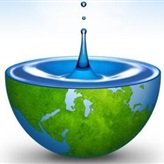Republic of Macedonia has been actively involved in numerous activities under the United Nations Economic Commission for Europe (UNECE) and World Health Organization Regional Office for Europe (WHO/Europe) Protocol on Water and Health (hereinafter “the Protocol”), while preparing for accession to the Protocol.
The Protocol aims to protect human health and well-being by better water management, including the protection of water ecosystems, and by preventing, controlling and reducing water-related diseases. The 2014-2016 programme of work under the Protocol gives special focus on promoting equitable access to water and sanitation services for all members of the society as well as on supporting countries to improve the situation of small-scale water supply and sanitation systems. The Equitable Access Score-card is an analytical tool which has been developed to help Governments and other stakeholders to establish a baseline measure of the equity of access to water and sanitation, identify related priorities and discuss further actions to be taken through a process of self-assessment.
With aim to promote the actions, a two-day workshop titled “Assessing equitable access to water and sanitation and small-scale water supply and sanitation systems” was held on 16-17 June,2015 in Skopje, where representatives of ENV.net team from Macedonia took active part.
The launching workshop of the self-assessment of equitable access to water and sanitation was held on 16 June, 2015, while the consultation focusing on small-scale water supply and sanitation was held 17 June 2015. The self-assessment of equitable access to water and sanitation through applying the Equitable Access Score-card was launched and welcomed by participants. It was agreed that the equitable access self assessment will be carried out in the 3 following regions: Skopje, Veles and Kumanovo. The consultation with national stakeholders on the situation of small scale water supply and sanitation systems in the country highlighted the existing framework for the surveillance of small systems as well as a number of challenges faced for the management of small systems.
The workshop was organised by the Institute of Public Health of the Republic of Macedonia, in partnership with the NGO Journalists for Human Rights. It was co-convened with the joint United Nations Economic Commission for Europe (UNECE) and World Health Organization Regional Office for Europe (WHO/Europe) secretariat of the Protocol on Water and Health.

